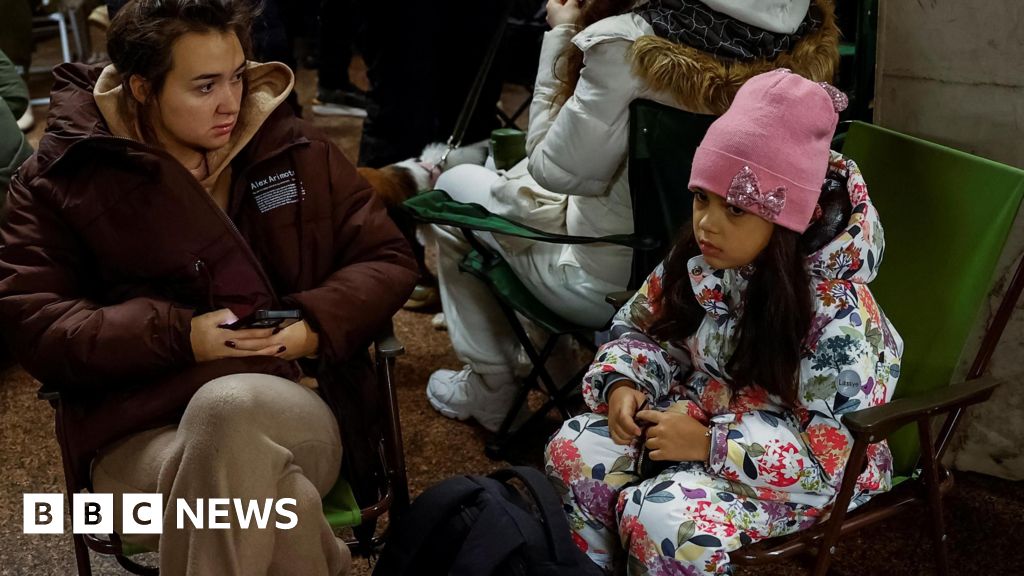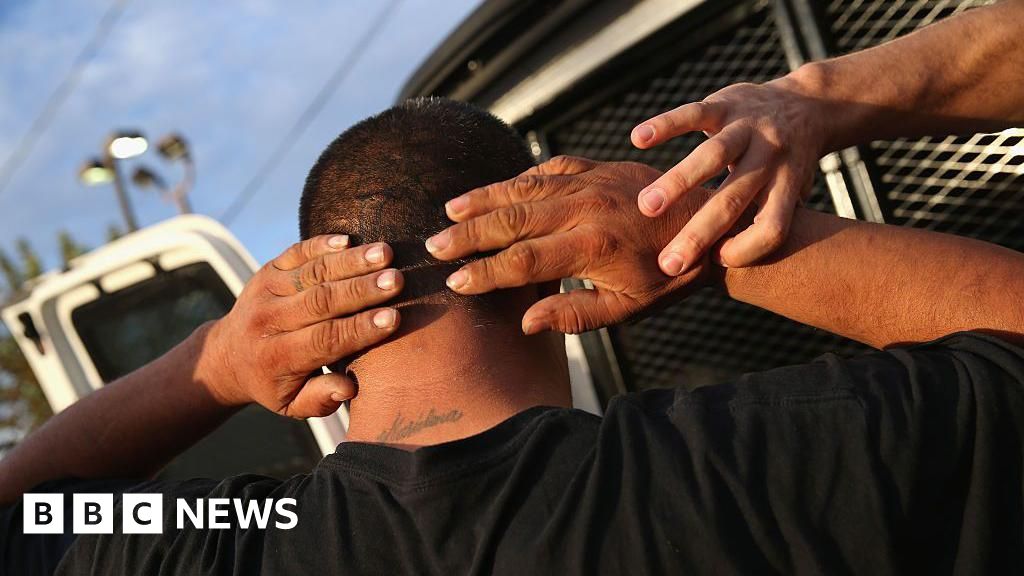ARTICLE AD BOX
The majority of Ukrainians fleeing Ukraine into Hungary are women and children
Refugee agencies fear up to five million of Ukrainians could try to flee across the border as Russia's war intensifies and casualties mount.
Tens of thousands of people have already crossed into five countries bordering western Ukraine.
Poland alone has reported more than 50,000 arrivals in two days, while thousands more have streamed further south into Moldova, Romania, Hungary and Slovakia.
Most of those fleeing the invasion are women and children, as all men aged 18 to 60 are being told to stay and fight.
'We fear the Russians'
By Nick Thorpe, BBC News, Hungary
Those I met on the road told me they were running for their lives. Some have heard or seen explosions, others are just horrified by the prospect of war engulfing their whole country. Most are young or middle-aged. Only the elderly are staying behind to protect their homes.
"There's a mood of panic in our village. People gathered in streets and set out for Hungary," said Eva, 44, who got a ride with her two children to the border at Beregsurany from her village 12km (7.5 miles) away.
"We're afraid the Russians will occupy the whole country. And we're afraid our men will be conscripted."
Most of those crossing the border are ethnic Hungarian Ukrainians, as this region of western Ukraine has a large Hungarian community.
At a small guest house not far from the border, Judit said her doorbell and phone had been ringing all night. She didn't want to turn anyone away, but only had three rooms.
Vera and her granddaughter Maria told me they had driven almost non-stop, 1,300km (800 miles), all the way from Kharkiv in north-eastern Ukraine. When I asked if she had left family members behind, she buried her face in her arms. They are hoping to stay with friends in Poland.
A woman from the local village council served tea as small children clutched teddy bears. A minibus slowed down offering a ride to Budapest, three hours' drive away.
Long wait at the border
By Rob Cameron, BBC News, Slovakia
At the Vysne Nemecke border crossing, about 2km from the Ukrainian city of Uzhhorod, a trickle of refugees made their way across the border. The same scene repeated itself every five minutes or so, usually a youngish woman pulling a child by the hand, a Slovak soldier or border guard helping to pull her suitcase.
Then a brief encounter with a waiting driver or relative to take them to who knows where: Slovakia, Hungary, the Czech Republic. No-one wanted to talk.
This is the largest crossing on Slovakia's 100-km border with Ukraine.
Vysne Nemecke is the largest crossing on Slovakia's border with western Ukraine
The situation appears calm and under control, for now. But that is largely because cars are waiting eight hours to cross, apparently because Ukrainian border guards are checking that men of fighting age do not leave, and their Slovak counterparts are registering every arrival.
But as the fighting intensifies and more displaced people move westwards, the trickle is expected to increase in intensity.
Most here are women, the elderly or children. Some women are carrying very young children in their arms.
Slovak authorities say at least some have turned up with nowhere to go. Some are being accommodated in a local church. There are no reception centres erected yet.

 2 years ago
54
2 years ago
54








 English (US)
English (US)